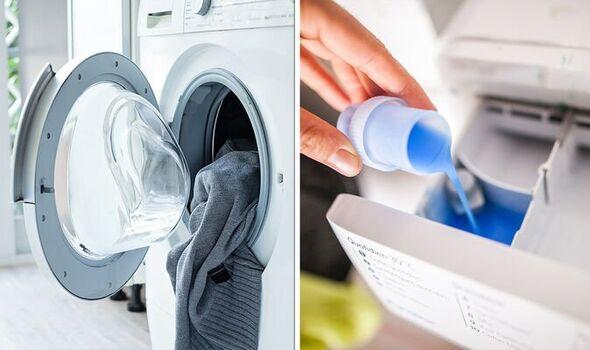Households across the UK are being hit with bigger bills from rising energy costs, inflated fuel prices and dearer food shops, and some are now findings ways to reduce their costs in any way they can. Luckily, there are some easy ways to save some cash by changing the way we use some of our home appliances.
Washing machines and tumble driers are said to be some of the most energy intensive appliances, but there are ways to use these more efficiently and sustainably. As reported by GloucesterLive, Deyan Dimitrov, chief executive of laundry company LaundryHeap, shares how you can save money by reducing energy consumption.
His tips include the cheapest time period to use your washing machine, how to maintain your appliances, and what to load your drums with. Below is a list of useful energy-saving laundry tips that could save you a few pennies too.
READ MORE: How to save fuel while driving with these nine top fuel-saving tips
1. Run your machines later in the day - but not while you are asleep.There are certain times of day when running your washing machine or tumble dryer can rack up your energy bill, as increased demand can make electricity more expensive, depending on your tariff. The most expensive time for you to wash or dry your clothes is between 4pm and 7pm, so try to avoid using your machines between these hours.
Energy prices are at their lowest between 10pm and 5am – perfect for night owls and early risers. But make sure you follow fire safety guidance and never put a load in and head to bed for the night. Drying multiple loads of laundry is best done consecutively so the tumble dryer stays warm between cycle.
2. The colder the cycle, the better.Washing your clothes at cooler temperatures for less time can greatly increase your machine’s energy efficiency. A 30C cycle can cut your washing machine’s energy use in half compared to a 40-60C cycle.
It is cost-effective to save your hot washes for any bedding, towels and sportswear as these items are most likely to host a multitude of bacteria. For even further savings, use the eco setting on your washing machine, if it has one.
When it comes to drying your laundry, it is also more efficient if you run a cooler cycle, even if this means it will take longer to dry.
3. Fill your drum with the right loads.It is much more efficient to do a large laundry load rather than numerous smaller ones, so make sure you fill your machines with suitable loads. An overfilled washing machine may not wash your laundry thoroughly enough, and an overpacked dryer can take too long to dry your clothing.
A good way to ensure that your machine will run as efficiently as possible is to check if you can still touch the top of the basin after filling either machine with your laundry. If you cannot fit your hand in and amongst your clothing, the machine is overpacked.

4. Maintain your machines. To keep your washing machine in top condition, it is best to clean it every three months. Pour two cups of white vinegar into your machine’s detergent drawer and run the hottest cycle. After the first run, add half a cup of baking soda directly into the basin and run a hot cycle again.
Alternatively, running a hot cycle with a limescale removing product is just as effective. For your dryer, remember to regularly clean its lint filter for maximum efficiency – ideally after each cycle.
5. Use bio for more effective stain removal.If you wash your clothes at cooler temperatures, it is best to buy bio capsules or bio laundry detergent, as they contain enzymes that can be activated at lower temperatures than non-bio products.
These detergents will be better at breaking down dirt and stains during a colder wash. Note that non-bio detergents are better for sensitive skin as they contain fewer harsh enzymes.
6. Invest in some dryer balls. Adding wool or rubber balls to your dryer during a cycle will help separate your clothes and increase their exposure to airflow. This can overall reduce drying time and the length at which your dryer needs to run for, saving you energy.
Wool balls can soak up some of the moisture in your machine and cut down drying time further.
7. Air dry where possible. Tumble dryers use the most energy out of all standard household cleaning appliances. But we are still in the grips of winter, so drying clothes outside is not really an option either, although it is by far the best for cost-effectiveness and giving clothes that unique 'line-dried' smell.
If the heating is on, and you have clothes to dry, pop them in front of a free radiator, preferably with doors closed to create a small heat vacuum.
What do you think about these energy-saving tips?Let us know in the comments below.
You can stay up-to-date on the top news near you with Dorset Live's FREE newsletters – enter your email address at the top of the page or sign up to our newsletters here.
More from DorsetLive
